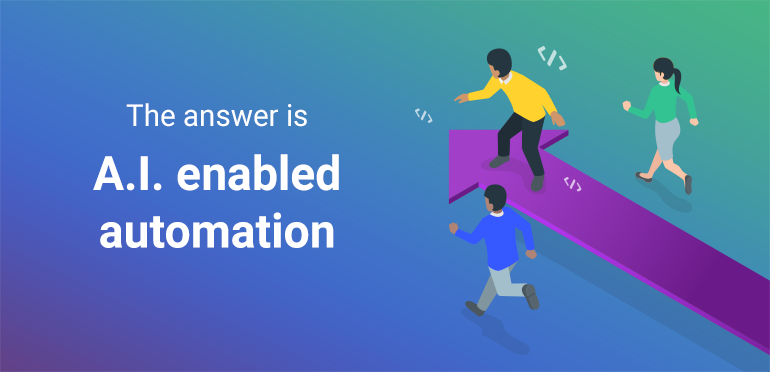STOP! Read this before overhauling your legacy systems

In today’s hyper competitive digital economy, it can be hard to keep up with all that rapid innovation. This is especially true for long standing businesses in traditional industries that have well established practices and that use legacy systems.
We often get asked by such businesses if younger organizations – like those born in the digital age – have a distinct advantage due to their ability to adapt and migrate new technologies almost at will.
“Is getting rid of what we already have the only way to compete?”.
We firmly believe the answer to be NO, and here’s why.
When you keep a critical system in place for a long time, two things happen: First, that system begins to amass data that is extremely relevant and valuable to your business and the unique ways it operates. Second, your teams get very comfortable doing things a particular way – even if that way is flawed. Though your people may agree that a process needs improvement, actually getting behaviour to change is an entirely different challenge.
When you consider it this way, overhauling the systems you’ve had in place for years simply doesn’t make sense – financially, or operationally. You’d need to make a huge capital investment in setting up and implementing a new solution, as well as absorbing the cost of phasing out the old one, along with any of its related systems that aren’t staying. During the transition, you’d also incur a lot of disruption, as teams take time to adapt to the new ways of working while maintaining a productive output and trying to minimize any negative impacts to customers.
So if your business has critical legacy systems in place, how do you go about competing with those who were built on digital tech from the ground up?

The answer is A.I. enabled automation.
Combining artificial intelligence with process automation, this type of solution helps you extract maximum value from the systems you’ve already invested in. Rather than scrapping everything and trying to drive adoption of a new system, you can enhance the ones you have by embedding a solution that leverages the data you’ve already accumulated.
It doesn’t matter whether you’re talking about service maintenance, marketing optimization, quality assurance, or anything else – there are almost limitless ways A.I. automation can be applied. This is because, broadly speaking, business processes are made up of information, tasks, decisions, and actions.
When built as a custom solution for your business, A.I. automation can be hugely successful because it uses these exact four ingredients to achieve a range of objectives; from speeding processes up and reducing manual labour, to improving quality and increasing output capacity.
A.I. uses a pool of historic data (likely collected and structured thanks to your legacy systems) to learn what to do at a particular stage of a process. This means sophisticated decisions can be made with a high level of accuracy, and without human involvement. Process automation then handles the action, executing the simpler, more mundane tasks that previously burdened your team.
This means that in many cases, you can fully automate a process end-to-end, or at least present people with recommended actions based on patterns in data that humans simply cannot see.
Over the past few years, we’ve seen long established companies transform their processes in critical areas of business, enabling them to compete and win against digitally native competitors. All of this without overhauling the legacy systems they have invested in.
The sheer scale of potential applications for A.I automation cannot be overstated, so make sure you check out our success stories to see how businesses across industries are driving the A.I. automation revolution.

Get the latest roundup of the most important, interesting and stories from the past week. In your inbox every Saturday by 10am.
Related Articles you might like
Key Strategies for Financial Institutions to Unlock AI Value
In the financial services sector, artificial intelligence (AI) is often heralded as a transformative force capable of revolutionizing everything from […]
View Blog PostIntelygenz President Chris Brown Shares Vision to Revolutionize Finance in FinTech Magazine
Intelygenz President Chris Brown was recently featured in an in-depth interview with FinTech Magazine, in which he outlined his mission […]
View Blog PostBridging the gap: From AI concepts to production success
In recent years, the conversation around artificial intelligence (AI) has shifted from theoretical possibilities to tangible realities. As businesses strive […]
View Blog Post

